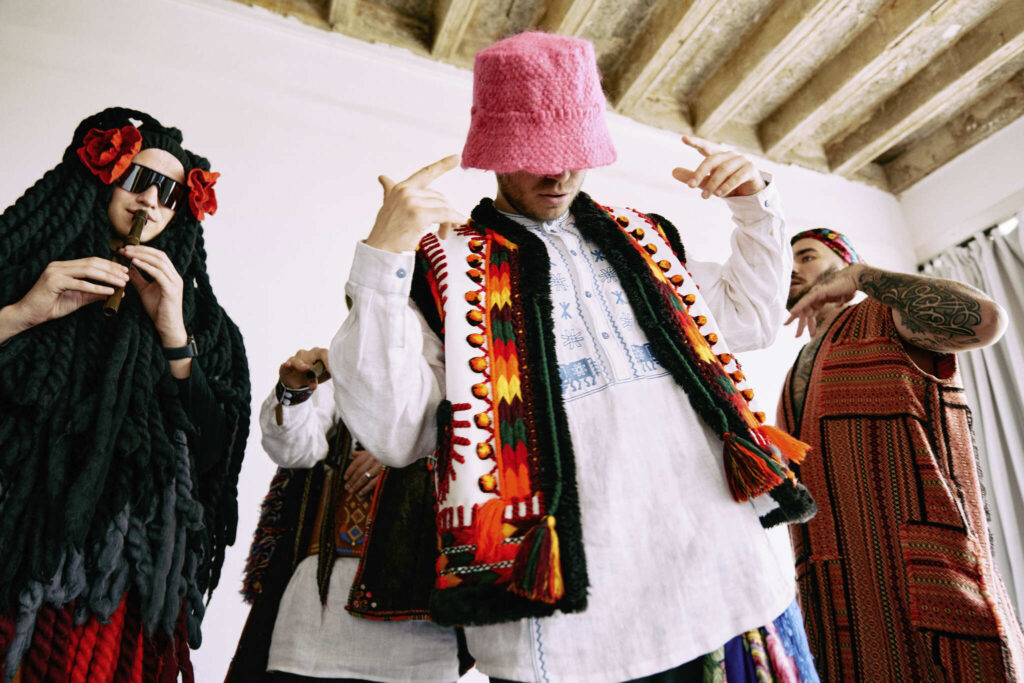While the 2023 Eurovision Song Contest gets underway in Liverpool, the UK, the reigning champions, Kalush Orchestra, will be taking a detour to Tallinn before the live final for a free Europe Day concert at Freedom Square on 9 May; Adam Rang spoke to the person who issued their invitation, the secretary general of the Estonian foreign ministry, Jonatan Vseviov, to explore what 9 May means to Estonia and what message the country and Kalush Orchestra plan to send together.
The Eurovision Song Contest begins on 9 May this year with the first of two semi-finals in Liverpool, the UK host city that stepped in after Ukraine’s Kalush Orchestra won last year’s contest.
That night, however, Kalush Orchestra will be on the opposite side of Europe to perform a free public concert at Tallinn’s Freedom Square to mark Europe Day. It’s the culmination of Europe Day celebrations in Estonia led by the Estonian foreign ministry. The concert in Tallinn will also feature one of Estonia’s own Eurovision winners from 2000, Tanel Padar, as well as last year’s entrant, Stefan.
The attendance of Kalush Orchestra is quite a coup for Estonia. They were originally expected to perform at the first Eurovision semi-final, but made a choice to support Europe Day in Estonia instead due to the country’s significant contributions to Ukraine. They will perform in Liverpool at the final on 13 May.
Europe Day is celebrated on 9 May across the European Union as it was on that day in 1950 that the “Schuman declaration” first set out a vision of European unity with the aim of making war between nations unthinkable. That idea would eventually evolve into today’s EU.
The day aggression as a tool was discredited
Jonatan Vseviov, the secretary general of the Estonian foreign ministry, says Russia’s full-scale war in Ukraine has given added impetus to the importance of Europe Day.
“9 May is the birthday of the modern European idea,” he tells Estonian World from his office overlooking Tallinn, shortly after returning from another visit to Kyiv. “But that birthday is about something much bigger. It’s the day when aggression as a tool of statecraft was discredited. We must ensure it remains that way.”
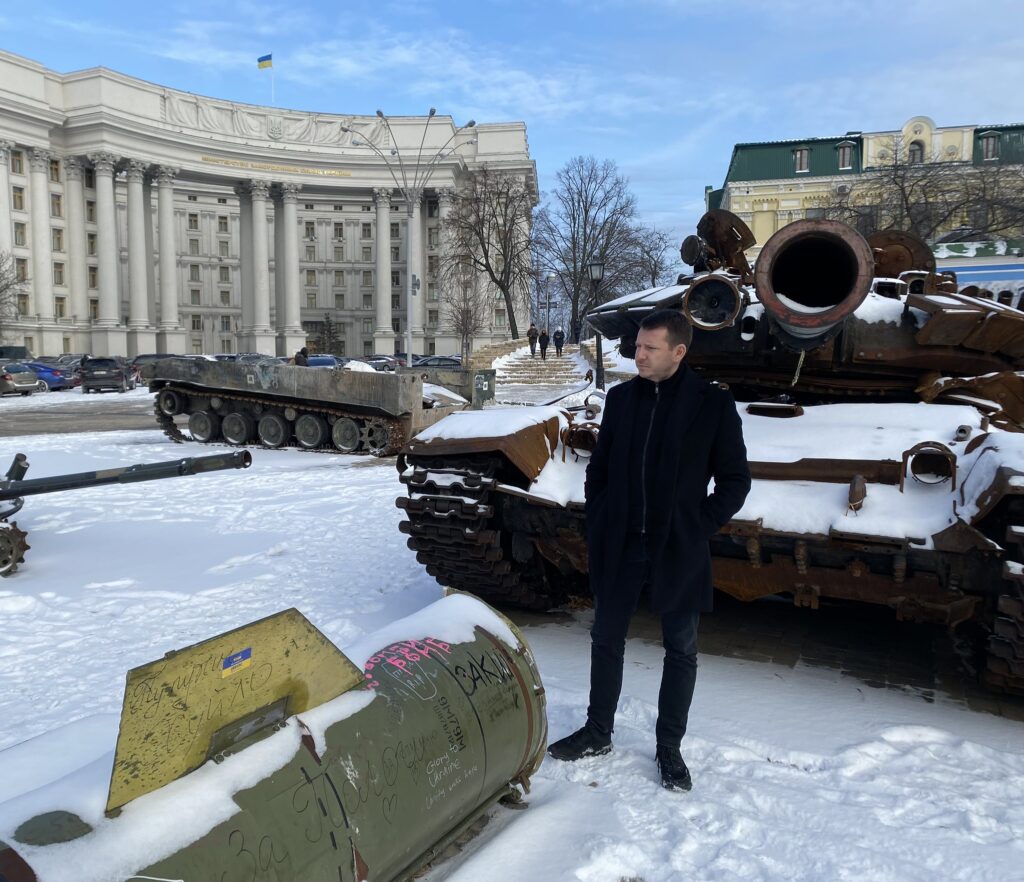
Vseviov is one of Estonia’s top officials who has played a significant role in shaping the country’s security strategy and foreign relations. He previously served as Estonian ambassador to the United States and as the secretary general of the defence ministry before taking up the same role at the foreign ministry. He is also a reserve officer in Estonia’s defence forces.
“During the 1990s, the Estonian foreign ministry organised rooftop concerts on Europe Day to celebrate our European values even before we joined the EU,” Vseviov explains. “Last year, after Russia launched its full-scale war of aggression against Ukraine, we decided to revive the tradition. This year it will take place at Freedom Square and once again our minds are firmly focused on Ukraine, which also deserves its place in Europe.”
“We invited Kalush Orchestra, as a Ukrainian group and Eurovision winners, as we thought it would be symbolic in many ways. We’re sending a message that Ukrainians are today fighting for European peace and security. They belong to Europe, too. And Estonia has an important role in telling the European story, standing up for the values and principles that underpin it, and creating the European future we all want. We will not shy away from history.”
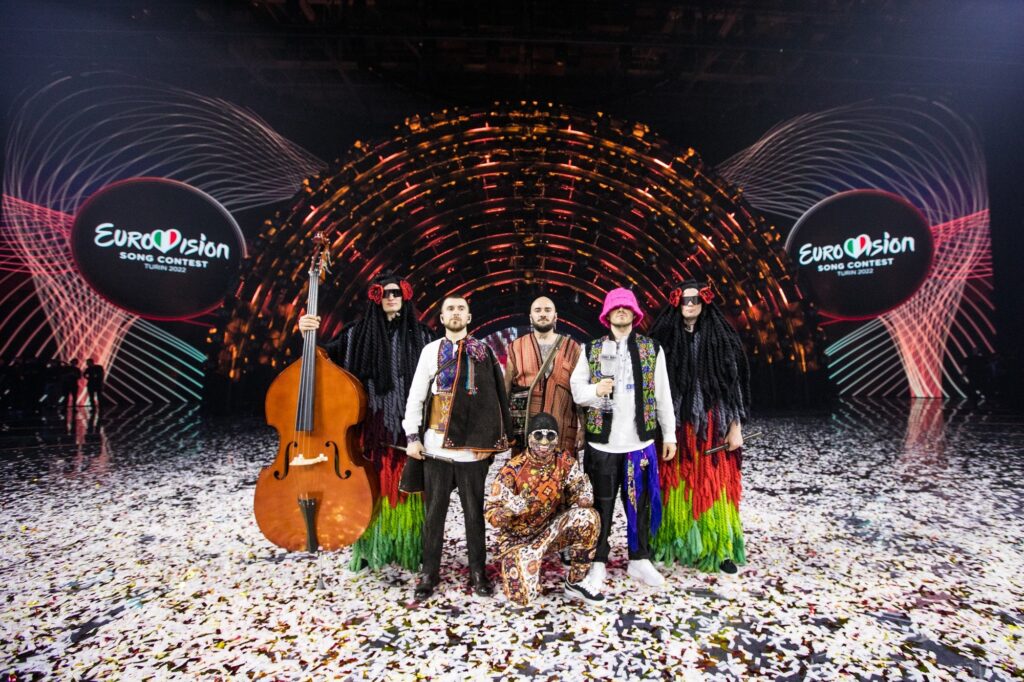
The shadow of the Second World War
9 May also coincides with the anniversary of the end of the Second World War, which led to the Schuman declaration. Most of the continent marks Victory in Europe Day (or Remembrance Day in Estonia) on 8 May, while Ukraine and Russia are among the countries that mark Victory Day on 9 May.
Ukraine has also had its own Europe Day since 2003, which falls on the third Saturday in May and had been growing in popularity in the years preceding Russia’s full-scale war against Ukraine as a celebration of Ukraine’s growing integration with the continent.
The sentiment behind Ukraine and Russia’s Victory Day commemorations have significantly diverged. Ukraine, like the rest of Europe, emphasises the importance of never again allowing aggressors to divide up sovereign nations, while Russia now focuses on using the occasion to justify its ongoing war of aggression against Ukraine. The Ukrainian president, Volodymyr Zelenskyy, has vowed to never let Russia appropriate the day.
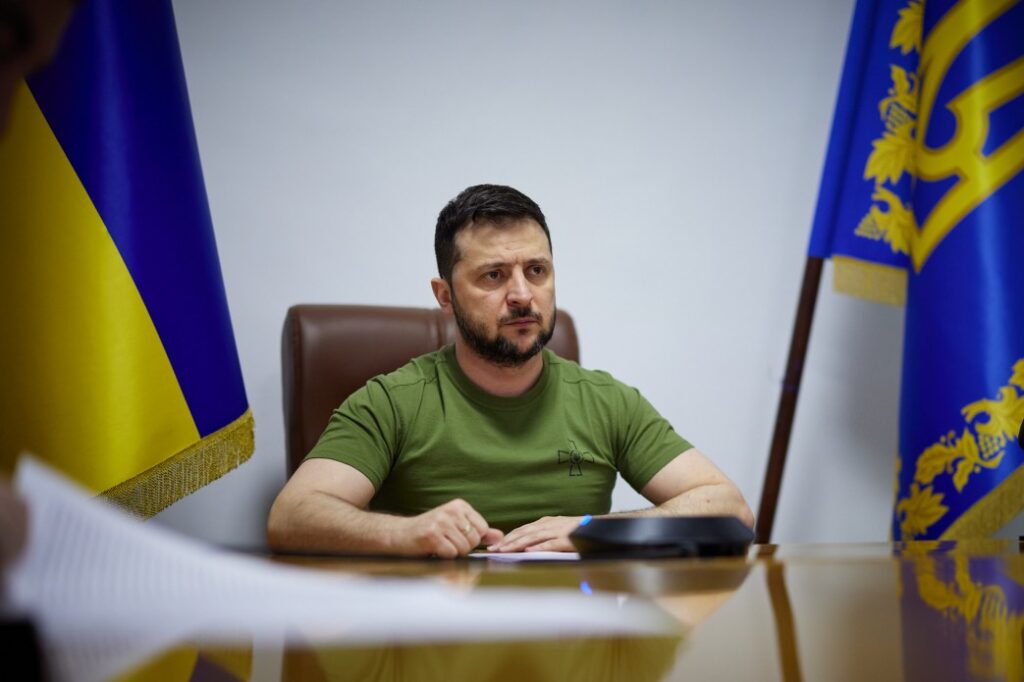
Moscow also uses Victory Day to reinforce its own historical narrative, which omits the first two years of the Second World War in which the Soviets and Nazis were in effective alliance following the signing of the Molotov-Ribbentrop Pact. The secret protocol of that pact illegally divided much of Europe into Nazi and Soviet spheres of influences, which led to the war’s outbreak.
Estonia declared neutrality at the outbreak of the Second World War, unaware that the Baltic countries had already been consigned by both the Nazis and Soviets to invasion and occupation by the Soviets, which was conducted on the pretext that Estonia was supporting Poland against its Nazi-Soviet invasion. After two years, the Nazis reneged on their pact and attacked the Soviet Union. The Baltic countries then suffered a Nazi occupation, too, before the Nazis retreated and the Soviets continued their occupation of the Baltic countries based on the illegal annexation process it had conducted through military force as originally agreed with the Nazis.
Peace and stability linked to the EU’s creation
As a result, Moscow’s version of Victory Day is associated in the Baltic countries, not with the defeat of the Nazis, but with the continuation of the Nazi-Soviet Pact, while Europe Day is considered to better reflect when that chapter of history was finally closed here.
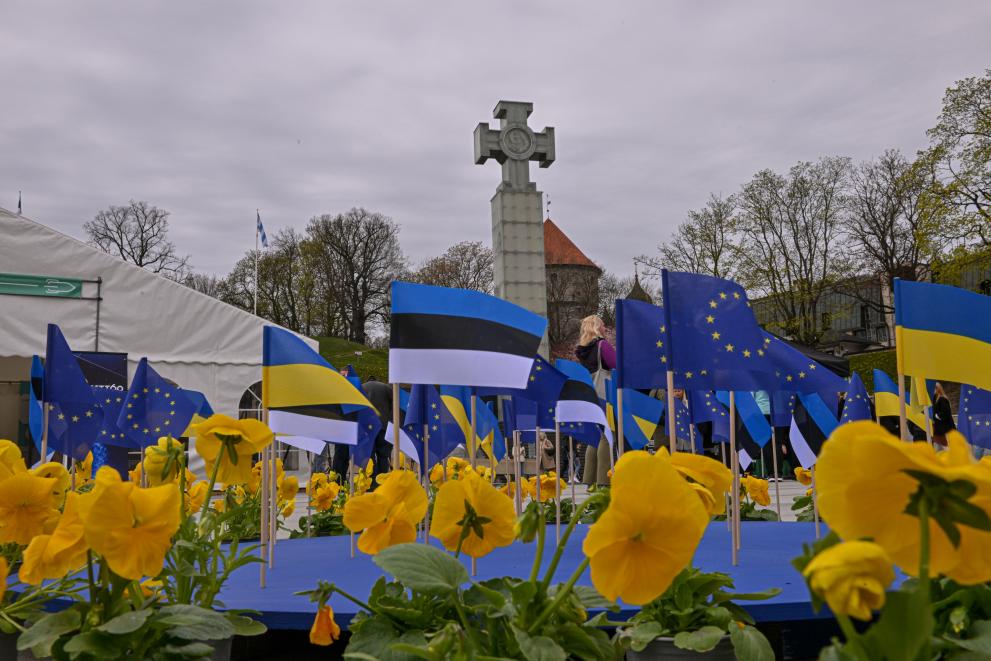
“European history can be a dark read,” Vseviov says. “But decades of war and devastation were brought to an end on 9 May with the end of the Second World War. The part that was liberated was able to establish an unprecedented era of peace, prosperity, and stability. The other half of Europe was also able to join this European success story almost half a century later.”
“This era of peace and stability is directly linked to the creation of the EU, which is as much about this new European set of values than it is with all the bureaucratic and legal developments that went with it. Those values are founded on an understanding that European nations need to work together. We can respect our differences and still recognise our common European roots and goals.”
“The other key pillar for peace and stability has been NATO as our defence alliance. We are not directly celebrating the birth of NATO on 9 May but if the allies had not succeeded in the Second World War, then there would be no NATO either to bind the Euro-Atlantic Area in a common security architecture.”
“The third pillar, less talked about but increasingly important, is that aggression as a tool of statecraft was fundamentally discredited. Not just for those in power but all those aspiring to power too. It became clear that aggression doesn’t pay. Now, four or five generations later, we have large scale aggression taking place in Europe again and, just like the Nazi attack on Poland that started the Second World War, this is not just a problem for one country. It wasn’t just Poland’s problem then and it’s not just Ukraine’s problem today. It’s a problem for all of Europe,” Vseviov explains.
The world must not repeat the mistakes of the past
“The challenge for us today is no less significant than it was for the leaders of Europe facing Nazi aggression. We need to ensure that generations who come after us also get to enjoy a Europe that is stable and secure. This war will end too and the way it ends will shape European and global security for generations again. It will establish whether aggression as a tool of statecraft is just as illegitimate and useless as it was on 9 May 1945.”
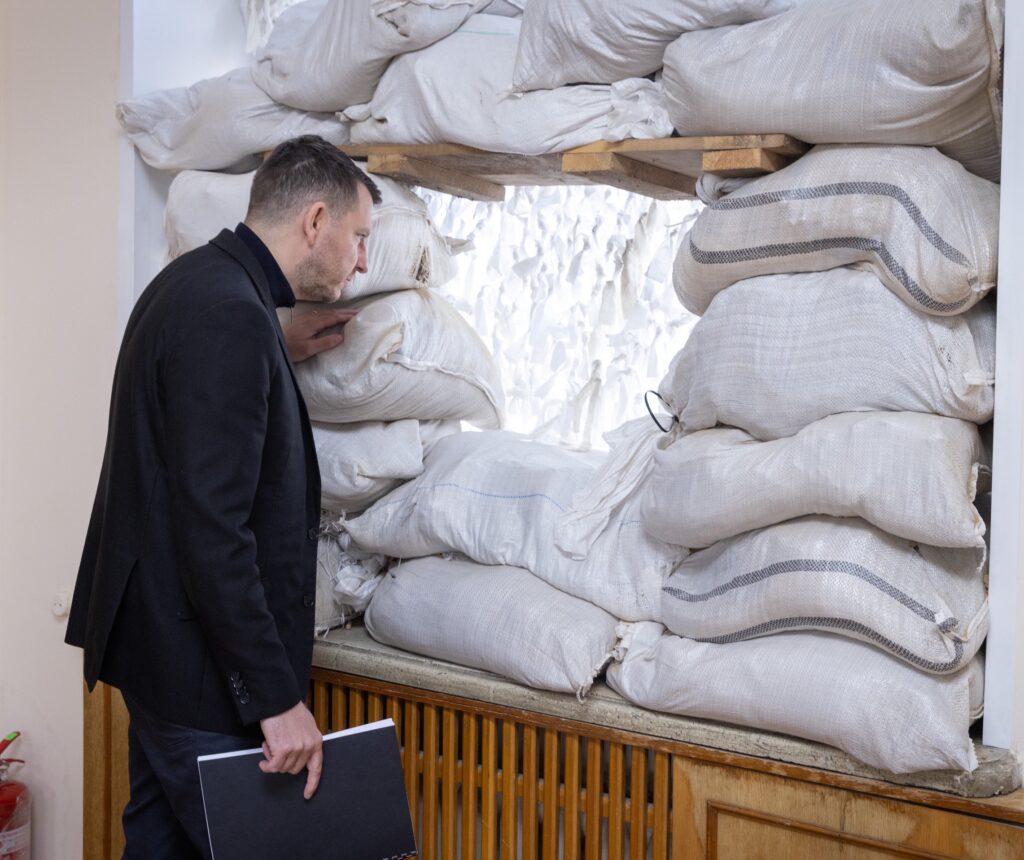
Vseviov says that, since the start of Russia’s full-scale war on Ukraine, the world has developed a much better understanding of the experiences and perspectives of Estonia and Russia’s other neighbours. As a result, according to him, the rest of Europe is “catching up” with Estonia on taking the actions needed to counter Russian aggression.
As an example, he points to the convictions and expulsions of Russian spies as something now happening on a larger scale across Europe. In the decade prior to 2021, Estonia accounted for half of all spy convictions in Europe, while the Baltic countries together accounted for two thirds of them.
“The world must not repeat the mistakes of the past,” Vseviov points out. “We’ve long been warning the world to craft policies that counter Russia, but it has been trying to hide its true nature from them behind a mask. On 24 February 2022, Russia dropped its mask. It’s certainly made it easier for us to explain what we are up against.”
“We can all see the reality of Russia as an aggressor that wants to reshape European security and return us to an age in which ‘might makes right’ and sovereign nations are divided into spheres of influence. Russia believes it should have the power to decide what smaller countries do or even if they can exist. This war is as much about Estonian security as it is Ukraine’s.”
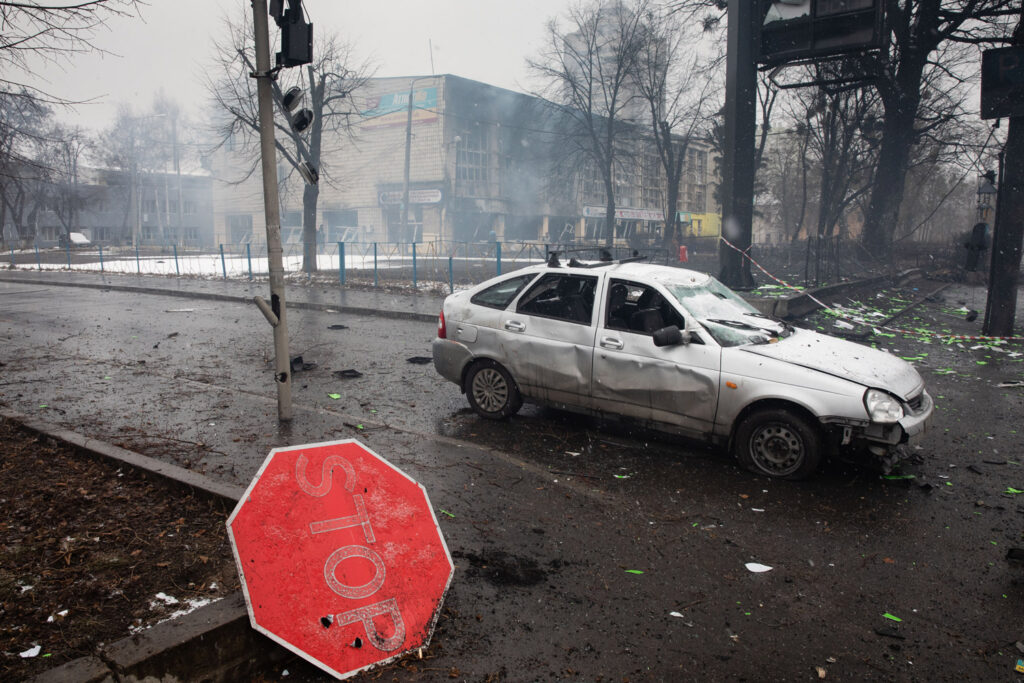
European unity is stronger than ever
“Our task now is to keep the world focused on what must be done to counter it, such as by firmly supporting Ukraine to accomplish the full restoration of its territorial sovereignty and by pushing ahead with a special international tribunal backed by the UN for Russia’s crime of aggression. We must ensure that aggression does not bring rewards. Aggression as a tool of statecraft must be consigned back into history.”
“But one consequence already of Russia’s war of aggression is that European unity is stronger than ever,” Vseviov notes. “We have a stronger NATO and a stronger European Union that has truly found its strategic calling after this wake-up call.”
Reflecting on his latest visit to Ukraine, he asserts it is vital that Estonia and Europe do not rest on its laurels.
“What we’re seeing in Ukraine is how Russia fights war, targets civilian populations, including through mass deportations, torture and sexual violence. Sadly, it doesn’t surprise us. We’ve seen all of this before. We recognise this from our own history. As humans, it’s natural to want to look away and shield ourselves from the horrors unfolding.”
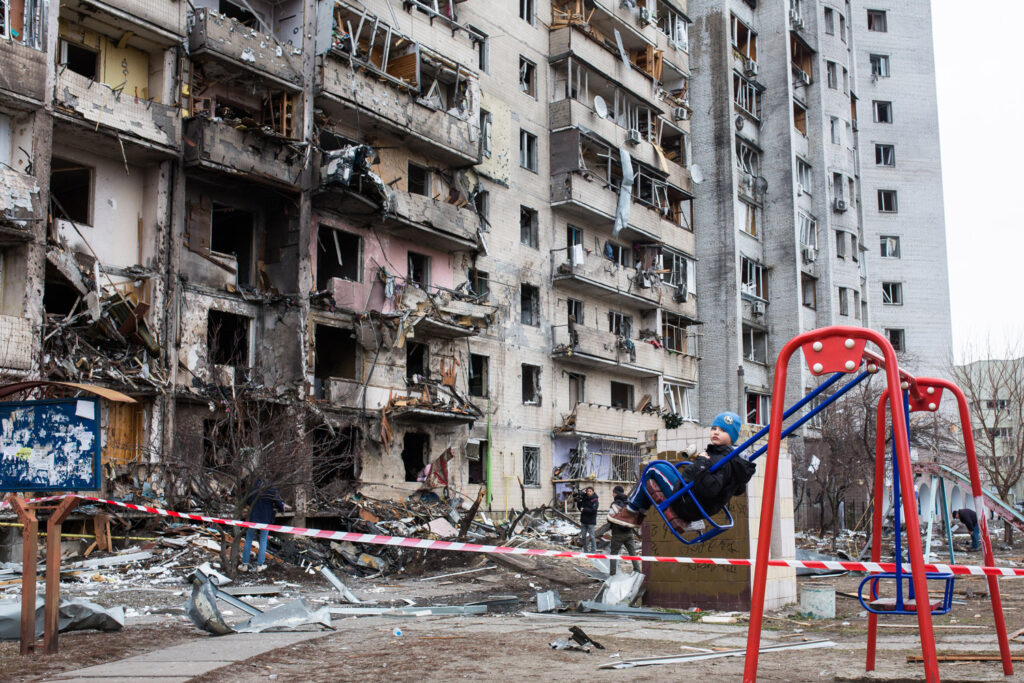
“It would be easier for us to think that what happened in Bucha, for example, was a one-off. But what happened in Bucha is happening every single day across the occupied territories behind the new iron curtain that Russia is attempting to establish. Nominal peace under the brutal domination of Russia is as far from a stable peace as can be.”
Only Ukraine’s victory will end the aggression
“Europe and the world cannot buy itself stability by feeding the aggressor with the freedom of other people. It is not morally justified and it will not lead to stability. We should have all learned from history that the aggressor will not just stop by running out of its own steam.”
“Russia’s leadership still believes time is on their side and that their goals are achievable. Estonia can be proud of how much it does to support Ukraine, but what matters is the end result, not how well you have behaved during the pivotal moments. This, too, is important in the context of 9 May. Only Ukraine’s victory will end the aggression.”
A minority in Estonia, largely within the Russian-speaking community, continue to mark 9 May as Victory Day as the continuation of the Soviet commemoration, which is sensitive in wider society due to its associations with the continued occupation of Estonia and risks of outside interference to generate tensions. However, last year’s Victory Day events in Estonia attracted considerably fewer attendees and passed off peacefully.
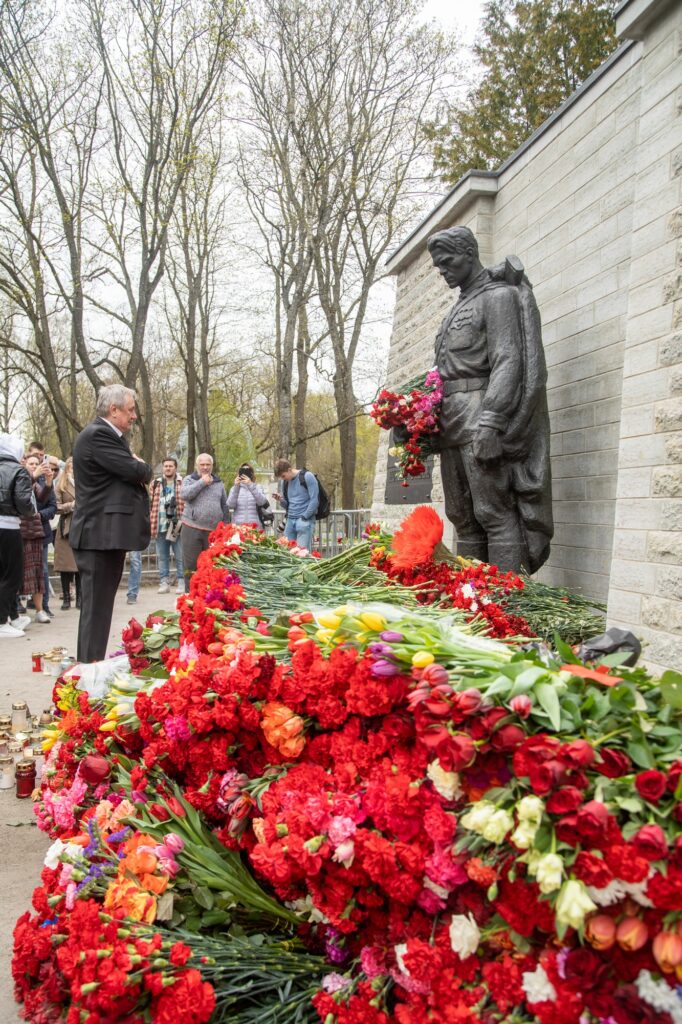
Vseviov also refers to the recent peaceful removals of Soviet occupation monuments from public spaces as an indication of Estonia’s strong societal cohesion, despite when perspectives differ, as well as its preparedness and resilience against external threats and propaganda.
“The Estonian society does not view every issue in a similar manner, but it’s one of our core strengths as a democracy that we can all get along. People’s rights are guaranteed, regardless of whether they voted for those in power. There is no large group here that can be considered anti-Estonia. Unlike during the Soviet occupation, everyone who lives in Estonia, lives here voluntarily. It’s an expression of their free will.”
Estonia’s progress with integration
“Going back decades, Russia has tried to undermine democracies. They have tried to sow discord and division. They’ve had some tactical successes but strategically they have always underestimated the strength of democracies. We in Estonia are well aware of Russia’s activities against Estonia, as well as other European countries for years, and we have successfully countered them.”
Vseviov points out that Estonia’s Eurovision entrant this year, Alika Milova, reflects the progress that Estonia has made with integration over recent decades and contradicts Kremlin narratives about Russian speakers in Estonia. Originally from Narva, Milova’s mother tongue is Russian, although she has learned Estonian, too, and since become an Estonian citizen.

She was a child star within the Russian-language media before shooting to national fame when she won the national television talent competition, “Eesti otsib superstaari” (“Estonia is Searching for a Superstar”). Over the past year, she has used her fame to speak out in support of Ukraine and has taken part in numerous fundraisers for Ukraine.
Anyone wishing to see Kalush Orchestra in Tallinn don’t need to worry about missing Milova performing at Eurovision this year. She’s taking part in the second semi-final on 11 May.
“We’ll be cheering on Alika when she steps out on stage for Estonia at Eurovision,” Vseviov says, “but she’s already made us proud for standing up for Ukraine.”
Read also: Updates: Russia’s invasion of Ukraine – reactions in Estonia

